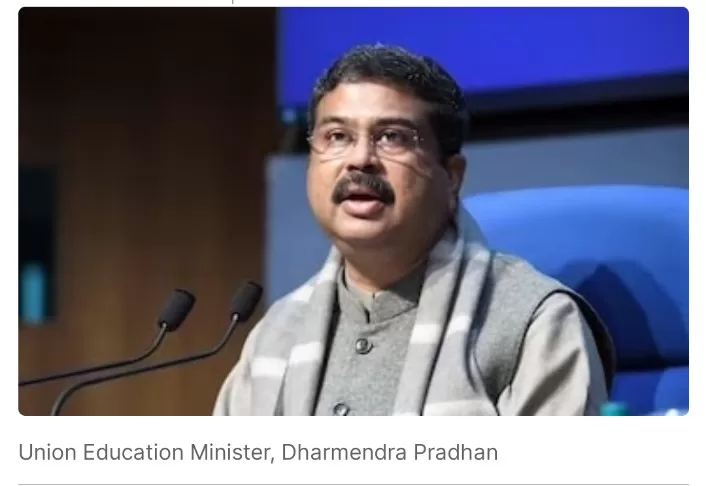New Delhi- Union Education Minister Dharmendra Pradhan unveiled a significant change in the Indian education system, announcing that board exams for classes X and XII will be conducted twice a year starting from the academic year 2024-25. In an exclusive interview with TOI, Minister Pradhan shed light on the forthcoming educational reforms.
Here are key excerpts from the interview:
Addressing Confusion: Concerns have arisen among parents and schools regarding the implementation of twice-a-year board exams. Minister Pradhan emphasized that the new approach is part of the National Education Policy (NEP) 2020, and the National Curriculum Framework (NCF) based on NEP’s recommendations is now in the implementation phase.
Twice-a-Year Board Exams -The traditional annual board exams for classes X and XII are being transformed into a more flexible format. Students will have the option to choose whether to take the exam once or twice. The highest score will be considered. This change is scheduled to be implemented from the 2024-25 academic year, affecting students currently in classes IX and XI.
Semester-Based Assessments:The interview also touched upon the transition to semester-based assessments for classes IX and XI, which will eventually extend to other classes. This shift is part of the second phase of educational reforms. The current priority is to develop new syllabi and prepare textbooks for classes IX to XII.
Incorporating Skills: The new NCF introduces fundamental changes, including the inclusion of skill-based education as a regular course. The NCF is designed to provide students with a scientific, need-based, and skill-oriented education that prepares them to be global citizens.
Textbook Availability:Minister Pradhan provided insights into the timeline for textbook availability. By 2024, new textbooks for classes III to VI and classes IX and XI will be ready, making them accessible for the 2024-25 academic session. Subsequently, textbooks for classes VII, VIII, X, and XII will be available by 2025, ensuring a smooth transition to the new educational approach.
Three-Language Formula: The interview also touched on the three-language formula, which prioritizes the use of mother tongue and native languages as the medium of instruction. This formula will be implemented from class VI to X, with students studying three languages, including two Indian languages. In classes XI and XII, they will learn two languages, one of which will be an Indian language.
The reforms aim to create a modern, flexible, and inclusive educational system that aligns with the changing dynamics of the world while preserving Indian values.
This marks a significant step toward revamping India’s education system to better meet the needs of its students and prepare them for a globalized future.




